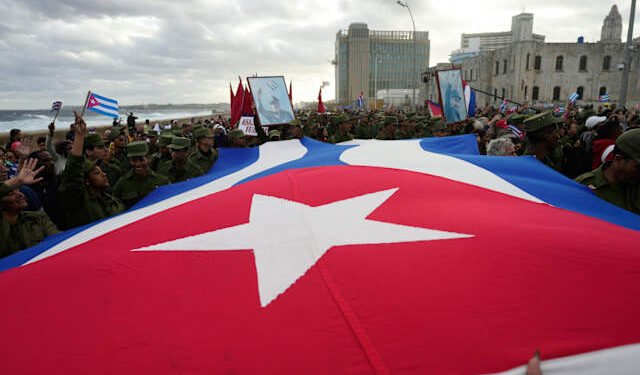Sudan’s fragile healthcare system is struggling to protect its population from a devastating cholera outbreak, as more than 16 months of relentless conflict, coupled with severe flooding, have crippled aid efforts.
The situation is dire, with aid workers facing immense challenges in providing the necessary assistance to those most affected by the ongoing turmoil.
“The needs are huge in Sudan; we are talking about people dying of hunger, we have conflict, we have protection issues, we have displacements on a daily basis; the needs are just huge,” said Kristine Hambrouck, the UNHCR Representative in Sudan, highlighting the overwhelming obstacles faced by humanitarian teams.
She further emphasized that these challenges are exacerbated by weeks of heavy rainfall that have worsened the already catastrophic conditions.
Famine and Disease Crisis
As if the cholera threat wasn’t enough, famine continues to ravage parts of Sudan, particularly in the Zamzam camp near El Fasher town.
The World Health Organization (WHO) has reported a staggering 658 cholera cases since the latest outbreak was declared on August 12, with 28 people losing their lives. This comes on the heels of a previous outbreak in May, which saw over 11,300 cases and at least 300 deaths.
WHO has also sounded the alarm on the broader health crisis engulfing the country, warning that 12 of Sudan’s 18 states are now grappling with multiple disease outbreaks, including cholera, malaria, measles, and dengue fever.
Despite the desperate need for life-saving healthcare interventions, resources remain scarce, particularly in hard-to-reach regions such as Darfur and Kordofan.
Cholera Spreads Amid Refugee Crisis
In areas hosting internally displaced persons (IDPs) and refugees, cholera is spreading rapidly. Kassala, Gedaref, and Jazirah states are particularly hard hit, with the UNHCR’s Hambrouck expressing concern over the rising number of cases in these regions.
“We have seen quite large numbers of cholera cases in Kassala; Kassala is an important area for us, it hosts a large number of refugees, but also internally displaced. So far, we have 119 cholera cases in three refugee sites in Kassala and five refugees have passed away regretfully of the disease.”
Kristine Hambrouck
The situation in Sudan has deteriorated significantly since fighting erupted between rival military factions in April 2023. The conflict followed a military coup in 2021 and the ousting of long-time President Omar Al-Bashir in 2019. Now, with overcrowded refugee camps and displacement sites, the risk of disease spreading is alarmingly high.
Hambrouck stressed the urgent need for international support to address the compounding crises, saying, “This is just one challenge, one on top of all the other ones that we somehow have to reprioritize and make sure that investments are being made.”
She pointed out that many people in these camps are living in extremely overcrowded conditions, with inadequate water systems that are overwhelmed by the influx of refugees from Khartoum, Wad Madani, and the Darfurs.

Vaccine Campaign Offers Hope
In this dire situation, there is a glimmer of hope. An initial vaccination campaign has successfully protected over 50,000 people from cholera, with hundreds of thousands more vaccine doses on the way.
“The vaccination campaign already started and we used the 51,000 doses that were already in the country,” said Dr. Shible Sahbani, WHO Representative in Sudan.
He added that the campaign in Kassala state concluded on Thursday, reaching 97 percent of the target population.
Further efforts are underway, as the UN health agency has secured approval to procure an additional 455,000 doses of cholera vaccine, which Sahbani described as “good news in the middle of this horrible crisis.”
However, despite the successes of the vaccination campaign, access to aid remains a significant hurdle, with ongoing logistical challenges, including floods and poor road conditions, complicating the response.























